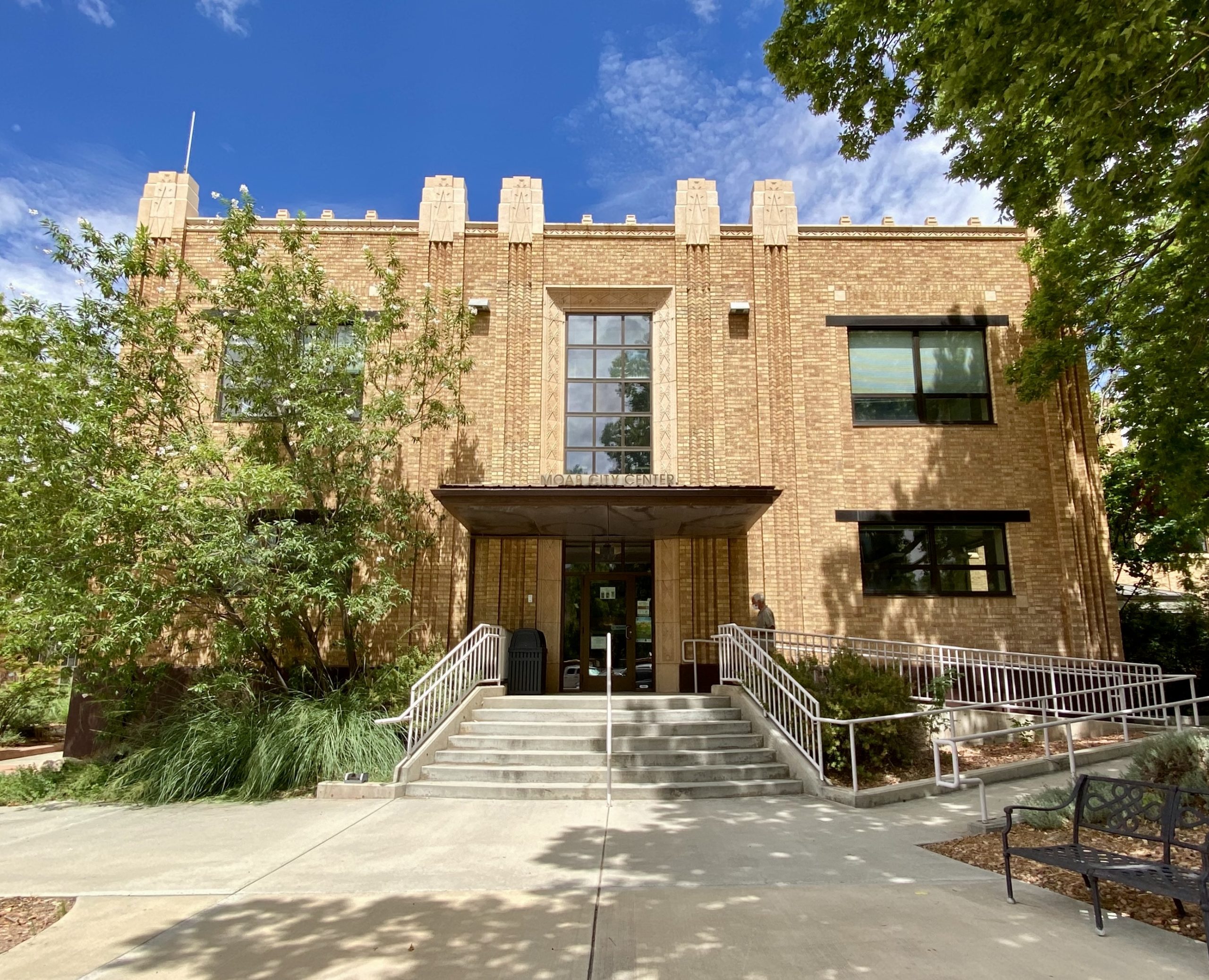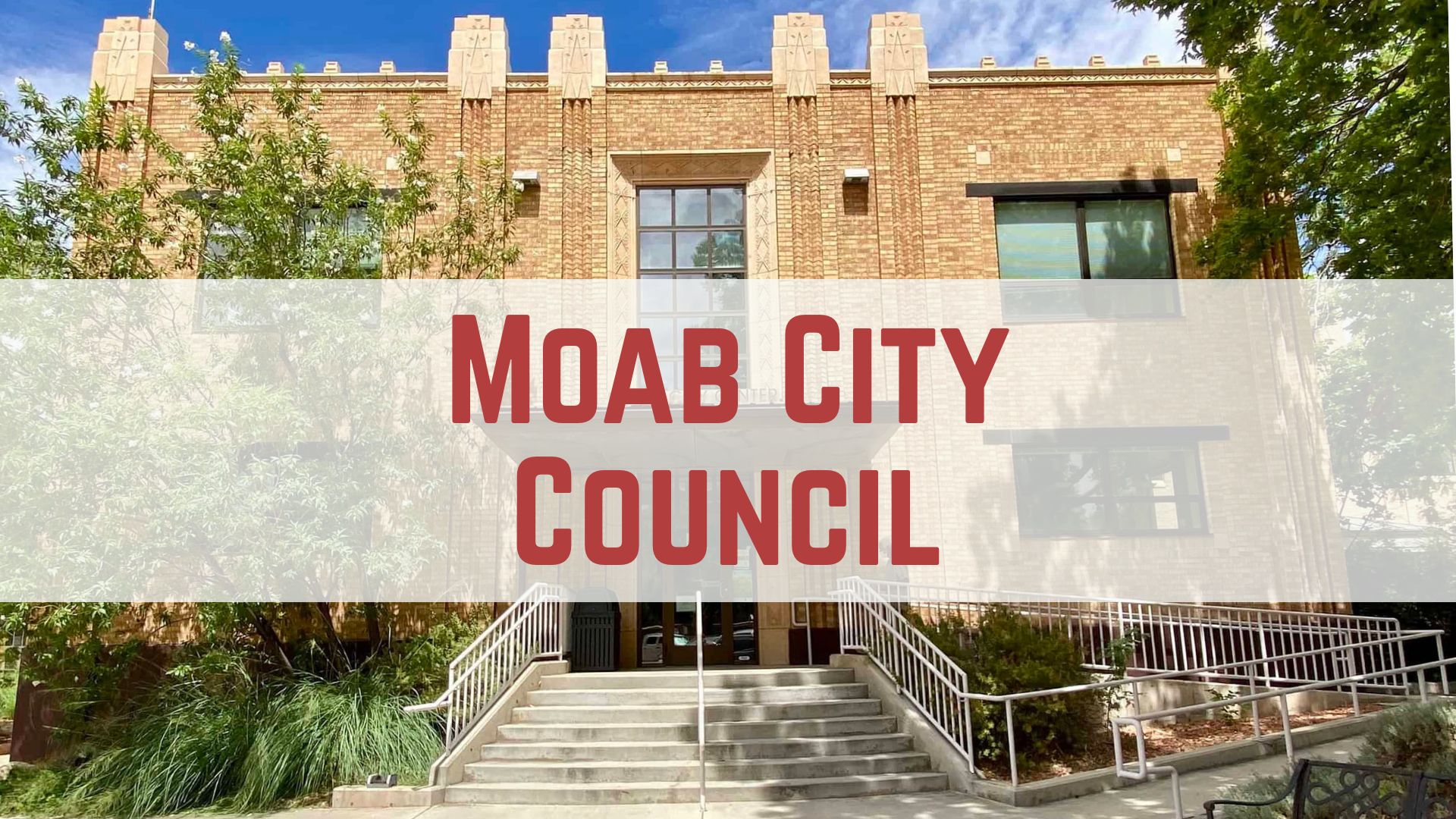Some information may be outdated.
In June, the city hired the consulting firm Lewis, Young, Robertson, and Burningham to analyze the finances of the Moab Recreation and Aquatic Center. According to the city’s Parks, Recreation, and Trails Director, Annie McVay, the report’s key takeaways were that the MRAC is operating well, but on a very lean budget, and it would be unrealistic for user fees to cover the full operating and improvement expenses for the MRAC—but higher fees would lessen the MRAC’s financial burden.
The firm recommended a fee increase.
During the Aug. 23 city council meeting, McVay presented two options to the council: a 10% fee increase, and a 20% fee increase. The fee increases wouldn’t be across the board.
“We want to highlight the two things we did not choose to increase: the daily fee for local residents—we felt that we wanted for this facility to be affordable for the local community—and also swim lessons were not impacted,” McVay said. The junior lifeguard course, class drop-in fee, and 20-class punch-pass also would not be impacted.
Last year, the MRAC made approximately $390,000 in total revenue, mostly from memberships ($155,000) and daily passes ($105,000)—of the daily pass users, 45% were nonresidents. With a total fee increase of 10%, McVay estimated the MRAC would make an additional $30,000 per year; with 20%, an additional $60,000. In 2019, the facility cost approximately $1,015,000 to operate.
Councilmember Luke Wojciechowski said there’s a significant portion of the community that is struggling financially—he supports not changing the daily fee for locals, he said, but he also suggested the city also develop a system to make the facility affordable for those who can’t afford the daily pass, too. Councilmember Rani Derasary agreed.
Councilmember Jason Taylor suggested increasing the cost of a shower for non-residents to $10, from $7 (for locals, the cost of a shower will not change under the new fee increases); Derasary said the facility could even do away with the non-resident shower option completely and just charge a daily pass fee. Over 9,000 non-residents paid for a shower at the MRAC last year, McVay said.
Taylor made a motion to only increase the cost of a shower for a non-resident to the cost of a daily pass; the motion failed. Wojciechowski then made a motion to increase select user fees to 10% for residents and 20% for non-residents, increase the cost of a shower for non-residents to the cost of a daily pass ($12), and provide a means-based discount for locals.
Castle said she was concerned with the means-based discount because the city had no concrete proposal for what that could be—she said the council could implement that after a plan is created. Wojciechowski amended his motion to exclude the means-testing for now, but added a deadline: he proposed the city should develop and implement a means-based discount by November 1.
The motion passed 3-1; Taylor dissented.
Appreciate the coverage? Help keep local news alive.
Chip in to support the Moab Sun News.





